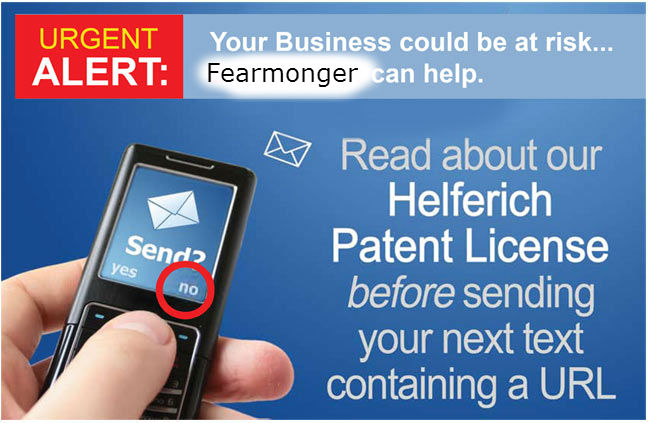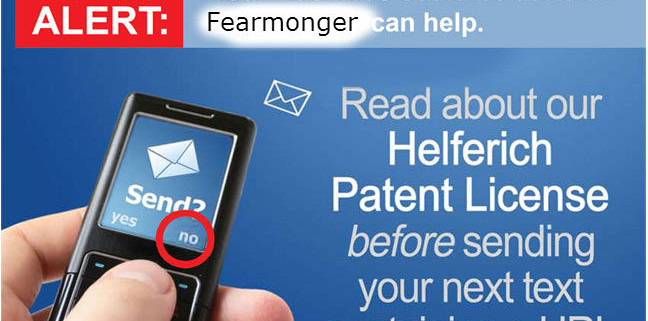Helfrich SMS Patent Licensing Lawsuit FAILS – NY TIMES & CBS Win!
Today an Illinois Federal Judge tossed 5 law suits alleging that brands including NY Times and CBS had infringed the Helferich Patent Licensing patents by sending text message alerts (SMS) to mobile phones including a URL, ruling that the patents are EXHAUSTED when the manufacturer sells a phone to the consumer.
US District Judge John W. Darrah rejected the patent troll’s position that the defense of patent exhaustion did not apply to infringement allegations since it only licensed the handset portion of it’s patented inventions to mobile phone manufacturers and not the “content” claims. The defendants’ SMS infringed those content claims the troll contended.
“Once the handset manufacturers sell the handsets which embody HPL’s patents, HPL’s patents are exhausted as to all third parties, including defendants,” Judge Darrah said in granting a joint motion for summary judgment filed by the New York Times, CBS, G4 Media LLC, NBC’s Bravo Media LLC unit and JC Penny.
Allowing the troll to “carve out individual claims from a single patent” and recover financial gain from downstream third parties that send SMS content to a licensed handset device, he said, “would frustrate the purposes of the doctrine, including an efficient method of determining that a patent had been exhausted.”
“To the contrary, the confusion that would be created by HPL’s model would produce uncertainty regarding the rights of third parties and end users and potentially deter further innovation,” Judge Darrah warned.
This case is part of a lawsuit blitz in which the troll has accused many media companies and other brands of patent infringement causing much angst in the mobile marketing industry. Many companies just paid for licensing rather than fight. Other mobile marketing software companies partnered with the patent troll to use fear in generating new business.

According to HPL, it has sold licenses for its technology to the entire cellular handset industry, constructing the agreements in such a way that it could recover multiple royalties on the same patents from a single sale or use.
Because of the distinction between its handset and content claims, HPL argued, patent exhaustion did not apply under the U.S. Supreme Court’s ruling in Quanta Computer v. LG Electronics, which held that when a patented invention is sold, all of the patent’s claims are exhausted, regardless of any narrowly tailored licensing agreements.
But Judge Darrah said HPL could not “avoid patent exhaustion by attempting to shield some of the claims within the patents-in-suit from being covered by licensing agreements.”
“Once HPL licensed its patent portfolio to, for example, Motorola, downstream customers and third-party users of Motorola devices employing HPL’s patents cannot be found to be infringing,” he included in his order.
The judge also made mention that there would be little value to mobile phone makers to purchase licenses to receive content from a third party “if the content provider, like the defendants, could not send the message to the licensed handset device without infringing the patents.”
Source: http://www.law360.com/articles/464984/ny-times-cbs-escape-mobile-alert-patent-suits









Leave a Reply
Want to join the discussion?Feel free to contribute!